What do a luxury car confrontation, a chilling prophecy, a star’s political future, and a digital crusade have in common? In recent weeks, Nigeria’s most prominent pastors have ignited scandals and sparked debate—each story unfolding with the suspense of a thriller.
But what’s driving these controversies—and what does it say about the evolution of faith in society today?
This article dives into these explosive moments—where faith, power, and controversy collide in June’s most unforgettable headlines yet.
THE ‘GUN’, THE PASTOR, AND THE RANGE ROVER
How a Viral Video Pushed a Global Preacher into Scandal
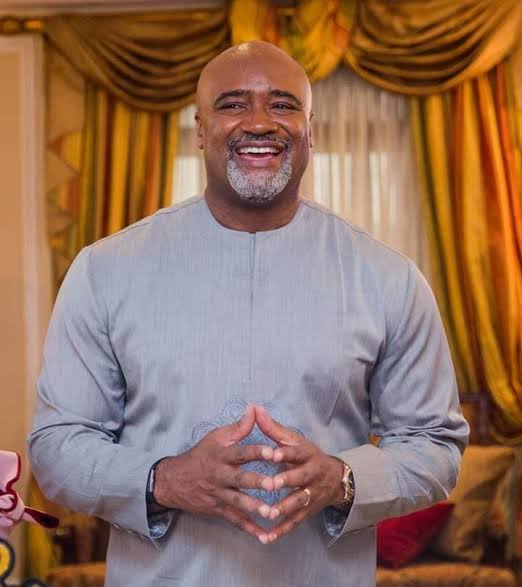
On June 5, a shaky video surfaced on TikTok showing House on the Rock founder Pastor Paul Adefarasin allegedly reaching for what looked like a handgun during a traffic altercation in Lagos. The footage, taken by a content creator filming the pastor’s luxury Range Rover, quickly spread online.
The pastor—known for his eloquence, international ministry, and presidential demeanor—suddenly became the subject of memes and think-pieces. Was he brandishing a firearm in public? Was it legal? Was it real?

Adefarasin swiftly responded.
“It was not a gun,” he clarified in a statement posted to the church’s social platforms and during a brief church announcement. According to him, the object was something else entirely—likely a pointer or a phone accessory.
“I did not, have not, and will not carry firearms,” he told congregants at House on the Rock’s headquarters in Lekki.
But the public wasn’t done.
Online sleuths zoomed into the video, dissected the hand movements, and pitted Adefarasin’s calm denial against the anxiety in the content creator’s voice.
In a country where extrajudicial killings and public safety are live-wire issues, the image of a megachurch leader potentially escalating a civilian encounter with a weapon hit raw nerves.
Why This Story Won’t Just Die
For years, Adefarasin was seen as a dignified pastor who stayed above the controversies that swirl around Nigerian religious leaders. But in the age of viral accountability, even a mistaken gesture can spark moral panic.
Is this a case of optics gone wrong—or is it a sign that even revered clergy are beginning to mirror the paranoia of the society around them?
The Lagos State Police Command has not confirmed any formal investigation, but calls for scrutiny continue to mount. As Nigeria grapples with increasing insecurity, many ask: Should pastors—especially ones with vast public followings—be seen handling or mimicking firearms at all?
ADEBOYE, THE FIRST SON, AND THE THREAT OF DEATH
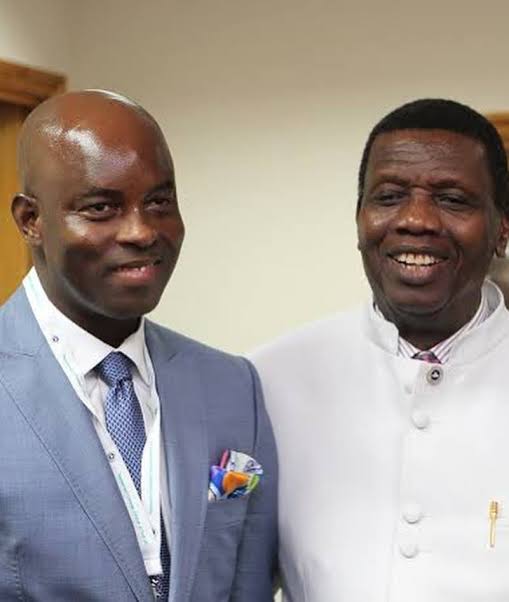
“If You Leave This Church, Your Firstborn Will Die”
That was the chilling divine message shared by Pastor Enoch Adeboye, the revered 82-year-old leader of the Redeemed Christian Church of God (RCCG).
During the June edition of the Holy Ghost Service at Redemption Camp, Adeboye revealed how he once contemplated leaving the denomination in its early days—and how God stopped him with a terrifying ultimatum:
“God said to me, the day you leave this denomination, your first son, Adeolu will die.”
It wasn’t just a testimony. It was a warning—and to many, a directive. Coming from a man seen as a spiritual father to millions, the weight of that statement shook even his most ardent followers.
Adeboye clarified that the statement wasn’t about denominational superiority, but obedience to divine calling. However, the implications were clear: walking away from divine instruction comes at a deadly cost.
Reactions: Loyalty or Fear Tactic?
The reactions online were mixed. Some defended the message as a raw and honest story about divine commitment. Others saw it as a veiled tool of control, especially in an era where more Nigerians are walking away from megachurch systems in favor of independent fellowships or progressive doctrines.
In a nation where pastoral figures hold enormous sway, messages like these can define destinies—or indoctrinate silence.
DAVIDO, PROPHECY, AND POLITICS
From Afrobeats to Aso Rock?
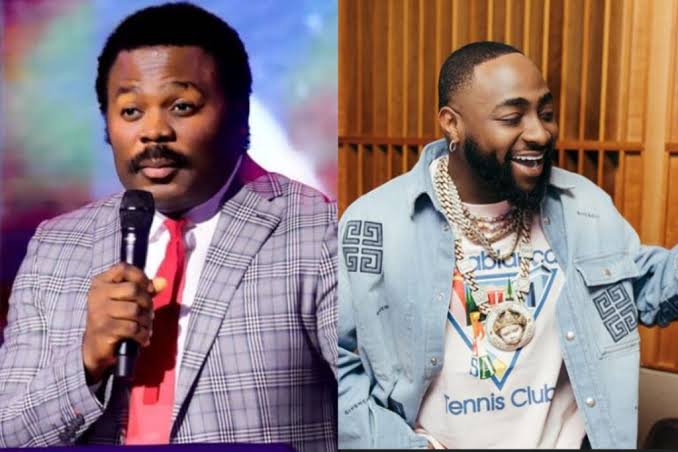
In a sermon delivered in Cape Town, Pastor John Anosike of Spirit Revelation Ecclesia stunned his congregation—and later, the internet—with a bold prophecy:
“I saw God anoint Davido for leadership. I saw a divine oil poured on his head… not just in music, but in government. I saw him leading Nigeria.”
The prophecy quickly went viral across platforms, with some followers using it to reinforce the idea that Davido, who has frequently been involved in charity work and peace campaigns, may carry a higher calling.
But critics weren’t sold.
One comment on X (formerly Twitter) read:
“So this is the new play? Pastors choosing celebs as presidents?”
The Nigerian Dream or Clerical Hype?
Davido (David Adeleke), though politically conscious and influential, has never indicated presidential ambition. But this isn’t the first time Nigerian prophets have linked celebrities or musicians to spiritual destinies.
In 2023, a prophet in Anambra claimed to see Wizkid in a “mantle of national rebirth.” That prophecy went nowhere.
Still, this one sticks. Perhaps because of Davido’s late son’s tragic death, or his consistent social giving, many Nigerians find comfort in the thought that someone who “has suffered and still gives” might one day lead.
But others warn: prophecies like these are becoming tools to draw attention, virality, and even political alliances.
Digital Activism vs Religious Authority: VDM’s Viral Clash
The Threat
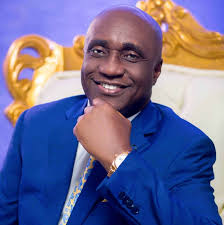
Pastor David Ibiyeomie of Salvation Ministries threatened legal action against bloggers critiquing his sermons .
The Response
Online activist VeryDarkMan hit back:
“You cannot command police… whether you are influential or not. You are not God!”
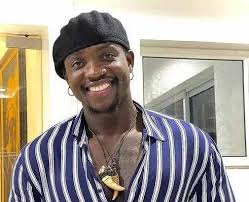
His Record
VDM is no silent critic. Arrested multiple times for cyber-stalking, defamation, and fraud allegations, he’s often accused powerful figures—even Femi Falana and Pastor Fufeyin—sparking lawsuits (up to ₦1 billion) .
Stakes at Play
This controversy isn’t only about sermon critique—it’s about whether digital spaces can challenge entrenched spiritual power. It’s pushing Nigeria toward a new civic norm.
Shifting Perceptions — A New Era of Dialogue Around Nigerian Pastors
The recent spotlight on high-profile Nigerian pastors — from Paul Adefarasin’s sermon with a firearm, to John Anosike’s prophecy about Davido, and social media critiques by figures like VeryDarkMan — reveals a subtle but growing shift: Nigerians are now more openly engaging with conversations about faith, leadership, and accountability.
This isn’t necessarily a rebellion against religion, but rather a reflection of a maturing society that is asking more questions and seeking deeper clarity.
A More Informed Generation
Today’s audience is not just listening — they’re watching, researching, and reacting in real time. Unlike previous decades, when sermons were experienced in person and rarely documented, today’s pastors are engaging with a digitally savvy public that consumes and dissects religious content across social platforms.
This shift has not erased faith; it has simply added a layer of scrutiny and openness to the conversation. People want to believe, but they also want to understand.
Prophecies, Power, and the Public
Whether it’s a high-profile prophecy or an outspoken critic, these incidents challenge the religious space to reflect on how influence is wielded and received.
- What’s the role of a pastor in shaping public discourse?
- How should prophecy be presented and interpreted in the age of instant media?
- Where is the line between expression of faith and performance?
These are not easy questions — but they’re timely ones.
Final Thought
In a country where faith is both deeply personal and profoundly public, it’s no surprise that moments involving religious leaders often stir national attention. The recent developments — from dramatic sermons to bold prophecies and online critiques — reflect not just isolated events, but a society where people are paying closer attention to the voices that guide them.
There are no easy conclusions to draw. Belief remains strong. So does curiosity. And between both lies a space where questions are asked, interpretations differ, and meaning continues to unfold.
The relationship between pastors and the public isn’t breaking — it’s evolving. And like all things shaped by time, culture, and connection, it will likely keep doing so in ways no headline can fully capture.













Leave a comment